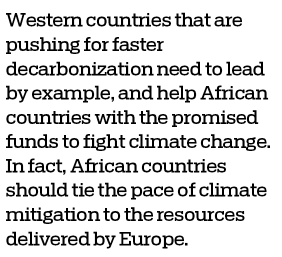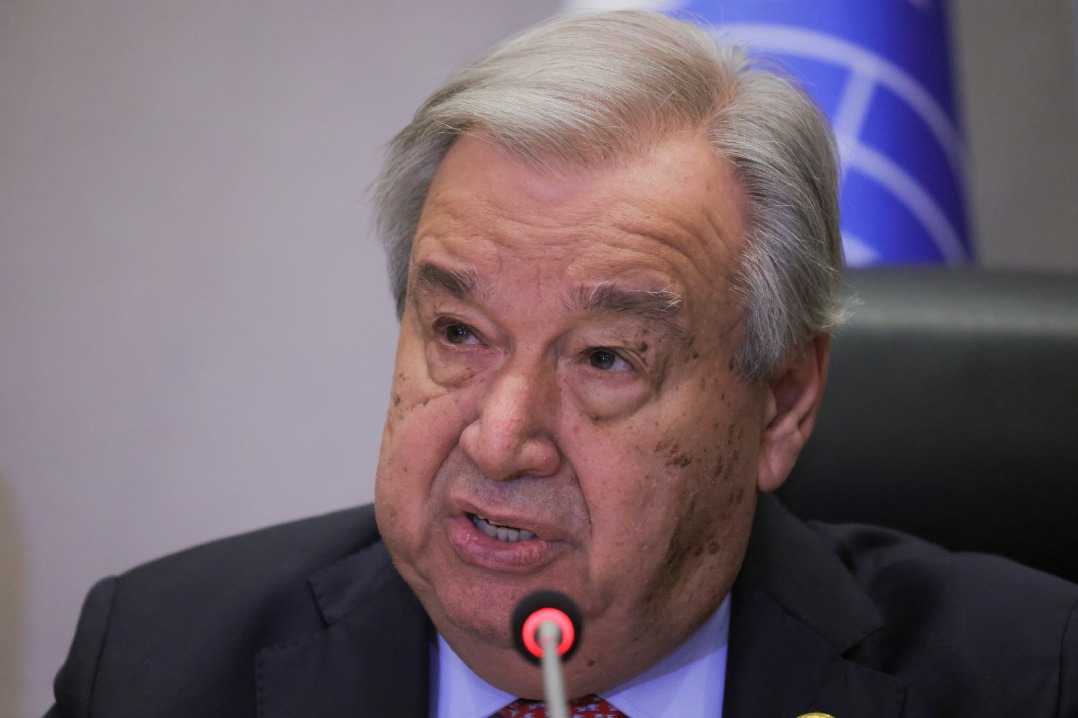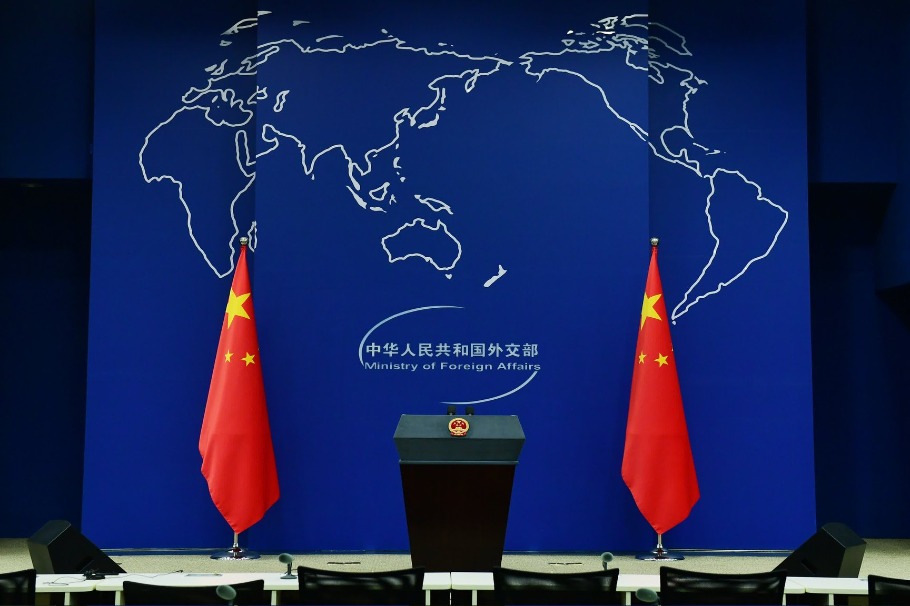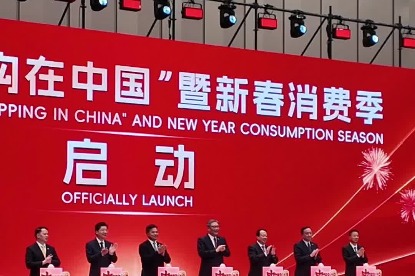Global South not obliged to pay for West's climate bills
By Mzukisi Qobo and Busani Ngcaweni | CHINA DAILY | Updated: 2021-11-04 06:47

The Earth is heating up at a rapid rate. Glaciers and icebergs are melting. Wild fires have become common. Bird and marine species are declining. Farmed sea food production is increasing as natural stocks diminish. In some regions seasonal fruits are "changing". And big cities such as Cape Town have had a near-encounter with day-zero as water sources dry up.
Migration as a result of drought and in search of grazing land for livestock is a common feature in many African countries. Cross-border conflicts and deepening human insecurity as a result of these forces could lead to a reversal of Africa's development trend.
The biosphere and its species have been put at enormous risk by an industrial civilization that places profits above all else and does not care about human solidarity across borders.
Industrialization in Europe was driven by coal mining and the exploitation and plunder of Africa's mineral and human resources. The United States' boom has a lot to do with the exploitation of cheap oil from the Middle East which was secured through wars and bloodshed.
Countries such as South Africa, the 14th largest emitter of greenhouse gases in the world, accelerated its industrialization on the back of gold mining, coal-powered electricity generation and steel production from the early 1920s onwards.
But even at its height, South Africa's industrial development benefited just its white minority. The Anglo-American owned mineral industrial complex together with financial conglomerates extracted most of the value and sent most of those profits offshore to modernise the capitals of Europe.
Unfortunately, even after nearly three decades of democracy, not much has changed in South Africa's economic ownership structure.
Yet like other countries of the Global South, South Africa now also has to mitigate the effects of climate change while maintaining a decent growth rate, and creating more jobs and making efforts to alleviate poverty.
The much talked-about energy transition should take into account the negative impacts of industrial civilization: the role that advanced industrial economies such as the US and European countries played in global warming, and the reparation they owe to humanity for wreaking havoc on the environment.
For countries such as South Africa that were colonized and suffered apartheid, and whose industrial development was skewed in favor of a white minority, managing the energy transition will require public policy and finance to be oriented toward addressing this historical injustice and the new risks associated with the large number of jobs that will be lost in many sectors, especially in coal mining and coal-powered energy sectors.
Thus, Europe is being hypocritical in pressing African countries to follow the low-carbon, green development path without delivering the much needed climate funds, and without taking responsibility for climate change. Western countries should not see climate finance a "freebie" for developing countries but as reparation for the humongous damage they have caused to the environment. Also, Europe has not been entirely faithful to the climate cause.
A recent article in the Nature says subsidies in the form of tax breaks or direct payments that make extracting coal, oil or gas cheaper are prevalent in Western countries. With the specter of energy crisis hovering over Europe as gas prices rise sharply on the back of a surge in demand and climate policy-induced uncertainties, many governments have resorted to shelling out gas subsidies while developing countries are forced to abandon fossil fuels.
According to an Overseas Development Institute and Climate Action Network report, European governments give more than €112 billion a year in subsidies to the fossil fuel sector. This shows how incredibly difficult decarbonization of the economy is for both rich and poor countries, especially the latter that are capital starved.
On the agriculture front, Europe's Common Agricultural Policy has struggled to rein in on-farm emissions. A recent European Court of Auditors report said: "The CAP mostly finances measures with a low potential to mitigate climate change … does not seek to limit or reduce livestock (50 percent of agriculture emissions) and supports farmers who cultivate drained peatlands (20 percent of emissions)."
The overall CAP budget is more than€400 billion, 26 percent of which is attributed to climate adaptation and mitigation. In the same year that the European Union signed the Paris Agreement, the European Commission overestimated the CAP fund it spends on climate action, claiming it to be 26 percent of the total CAP budget, when it was actually 18 percent, according to the European Court of Auditors.
Five years later, the European Commission still has not got this right, despite having launched the European Green Deal in December 2019. The continuation of CAP and its financing of activities that generate emissions is a double-edged sword that pollutes the environment and distorts international trade, which harm the interests of African and other developing countries that have comparative advantage in agriculture.
European countries are also contemplating strategic gas reserves through pooled procurement of natural gas and expanding storage infrastructure, so as to avoid disruptions to energy supplies caused by high prices in the future. Yet developing countries have been discouraged from using gas as a back-up alternative.
Europe has planned investments of about €104 billion in gas pipelines and liquefied gas terminals, notwithstanding its rhetoric of a Green Deal. These investments are in the name of securing greater security of energy (gas) supply to sustain jobs and businesses.
What does this mean for the Global South, Africa in particular?
We contend that African countries maintain an energy mix rather than follow the lead of Europe. Africa's path to low-carbon development should be carefully managed and based on the continent's own development needs and realities. Also, African countries should be careful not to decommission their coal and other energy resources, because that will pose a threat to energy security in the future and undermine their industrialization efforts.
Western countries that are pushing for faster decarbonization need to lead by example, and help African countries with the promised funds to fight climate change. In fact, African countries should tie the pace of climate mitigation to the resources delivered by Europe.
And threats of carbon tax adjustment at the border by the EU should make African countries pause and think about future trade relations, and diversify away from Europe to Asia. Africa can negotiate better trade relations with China, for example, and reduce its dependence on European countries which insist on inequitable terms of trade.
It is important that African countries work together to find local solutions to the dual crises of climate change and national energy emergencies, and be weary of outside "solutions" that will eventually privilege the Global North. Africa needs to mix it up to ensure energy security.

The views don't necessarily reflect those of China Daily.
Mzukisi Qobo is an associate professor at and head of Wits School of Governance; and Busani Ngcaweni is a visiting professor at the Wits School of Governance, University of the Witwatersrand, Johannesburg.
If you have a specific expertise, or would like to share your thought about our stories, then send us your writings at opinion@chinadaily.com.cn, and comment@chinadaily.com.cn.
























